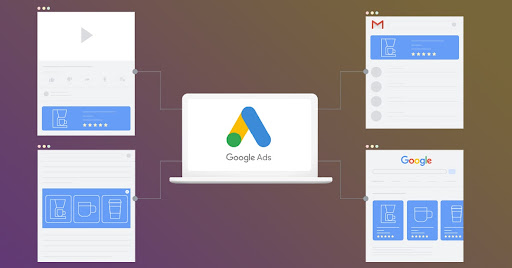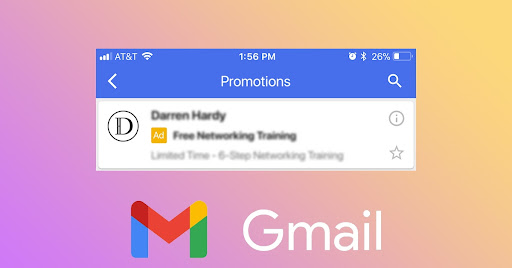
What Is CPA Marketing?
Effective promotion of CPA offers with google ads requires strategic planning and execution. These tips will help you enhance visibility, increase conversions, and optimize the overall performance of your campaigns.
Cost Per Action marketing is a popular model of affiliate marketing in which commissions are paid out to the affiliate upon completion of specific actions. These actions can vary drastically and be very easy or extremely hard. Depending on the difficulty, the payment you can get from a single CPA offer can vary drastically.
The harder ones usually pay a lot more as it is expected that there won’t be many conversions. The easy ones pay far less on average, but it’s considered to be highly profitable through sheer volume. As you might see, this is also a great thing to differentiate pros from beginners. Newcomers usually pick the easier offers since they have a bigger chance to make some money. Affiliate marketing veterans usually prefer the high payout, low volume deals, as they can convince far more people to convert than other affiliates. TheyWith their knowledge, they can make far more than any low payout/high volume running affiliate can with their knowledge.
But this doesn’t mean you should jump on the latter. Pick the one you feel most comfortable with and find a balance between the payout and volume that best fits you!
What Are Google Ads?
As you might know, Google is one of the biggest if not the biggest advertising platform online. This search engine makes most of its money through its vast ad system. Google Ads (once called Google Adwords) is the culmination of that advertising system. It is an easy to use and highly efficient system to advertise anything you wish. From products, and services, to websites, videos, music, or whatever you can think of!
The way the ad platform works is quite simple in concept. Users of YouTube, Google, and other platforms that utilize Google Ads usually look at the content or search for content that has some sort of keywords tied to it. Google Ads analyzes those keywords and compares them to your previous search queries. It then tries to find the right ad for a service or that can help you with that query or an ad for something that might pique your interest.
As an example, you might be searching for exercise at home equipment for a while in search of the right product. Google will find your query results that answer your query to the best of their ability, but they will also show you ads that might interest you or help you with your search. In this case, you could receive adverts for some exercising equipment, some home exercise guides, or local gyms that you could visit.
Depending on what type of ad you are seeing (Display, Search, or others) you might see it as a search query result, video ad, or regular ad card. The system is simple but highly effective.
Google Ads And CPA
Promoting CPA offers on Google Ads is simple and easy to set up. You will need to set up your Google Ads account and create a new campaign. Within the section where you choose what your campaign should focus on, select leads.
Here you will be presented with a couple of choices like:
- Search (Reaching customers interested in your products or services through text ads shown on search results)
- Display (All sorts of ad types across the web)
- Shopping (For shopping ads product promotions)
- Video (For YouTube and other Video adverts)
- Smart (An automated system for reaching users across the web)
- Discovery (For helping people discover your products and services on YouTube, Gmail, and more)
(More about this in the following sections)
Upon selecting something from the list, you will be prompted with the question of how you would like to reach your goals. This is the action you want your customers to take. For this case, let’s say we want “Lead form submissions” as our desired action.
You should be then prompted to name your campaign and select on which networks your specific ads should show up. You can also change the country, location, language, and many other standard filters to ensure you have the right targeting and the right audience.
You also have to determine your budgeting. This is done through a daily budget that you will be charged for. Within that budget, you will have to add your bidding and what metric you want to focus on. You can set a target CPA that Google Ads will try to hit.
The rest is pretty bog-standard. You create ad groups, name them, select keywords, research what keywords are best, and select anything else you need to.
The next and last step is to set up your specific ads individually. You will need to add headlines, ad texts, creatives, descriptions, and URLs. After you have completed all of this, your campaigns are ready to go for review and launch.
How To Use Google Display Ads?

You are most likely to interact with display ads during your time on the web. These types of ads are showcased on a vast array of websites that utilize Google Ads for their advertising needs. All of these ads are groped under the Google Display Network.
These ads can show up in a bunch of formats. Anything from simple banners, to pre-roll video ads on YouTube. The most popular ones are video display ads, image display ads, text display ads, and rich media display ads. These are the ads you think about when someone says “ad”, and Google’s take on display ads is one of the best in the industry!
There are a couple of targeting options that we should cover as well. These are:
- Display keyword targeting
- Display placement targeting
- Display Topic Targeting
- Display Interest Targeting
GDN (Google Display Network) keyword targeting is the most widely used approach for targeting. Setting it up to work properly is not that hard, and here are the basics:
- Research your keywords and set up your keywords list
- After finding the right keywords choose the best ones and add them to your campaign. Keep the list small, under 20 related keywords and phrases should be more than enough!
- Optimize your ads for the best results!
Display Placement Targeting targets specific websites where you can place your ads. This gives you better control over where your ads will show up. This is great for targeting your specific niche and giving users ads that they are bound to be interested in!
Display Topic Targeting allows you to target your ad placements based on the topics that you are trying to cover or rank for. This is used to better target your desired niche without spending resources on promoting on pages that you don’t know have any impact on your bottom line.
Display Interest Targeting is a topic-based targeting method. It targets users based on relevant topics and their interests. This system is pretty smart on who and how it advertises to users, but you need to target the right interests for it to work in the first place.
How To Use Google Search Ads?
Search campaigns are the ads you are most likely to see when Googling things on the search engine. These types of ads show up as sponsored query results that are tied to what you searched but don’t always have to be the best result for your query. These ads usually show up at the first, or first couple of places of your search results. They are tagged with the word “Ad” but other than that they look like normal results.
The biggest benefit to these search ads is that they display next to actual search results that people trust and expect to work each and every time. The high placement gives you a big chance that someone is going to click on your ads to fulfill their goal.
For this reason, Responsive Search Ads can come in quite handy. These types of ads allow you to enter multiple versions of your ad and then run them all at the same time. You will quickly gain valuable insight into what works and converts the best, and what just doesn’t make the cut. Try experimenting and changing up your formula until you find the right combination for your campaigns.
How To Use Google Gmail Campaigns?

Google is a huge company with many online products, and its ad system covers pretty much every one of its services. One of the most underutilized ones is Gmail. While the email platform itself is extremely popular, not many marketers know that you can advertise on Gmail!
Gmail has integrated a robust advertising solution that shows users adverts in the form of emails. These emails are tagged with an “Ad” symbol, but look completely normal other than that. Upon clicking on the ad, the user is presented with a detailed and interactable email that explains the offer. Depending on the ad goal, you can be shown a landing page, video, submission form, website redirect, or any other sort of promotional material.
Creating them is simple and it’s done through the display network tab. These Gmail campaigns are quite effective and it’s a real wonder that most marketers have no idea it exists at all. With a proper Gmail campaign, you will be able to reach a broad audience that will be actively interacting with your content! And with people spending more and more time reading through their emails, this sort of advertising campaign might just be perfect for you!
Is It All Worth It?
Google Ads is an incredible platform to promote your products and services. Thousands of marketers use it every day and some of them have incredible results to brag about. Google ads have a bunch of ad and campaign types that you can test out for your campaigns, but the important part to know about all of them is that you can make each of them work in specific ways. There is no “one size fits all”, so you will have to spend some time creating and optimizing your campaigns for each type.
Cost Per Acquisition can help you a lot on your journey as it’s a great way for beginners to dip their toes in marketing. With CPA, there is payment only when some desired action is happening, so as a product owner, you don’t need to worry about overflowing costs, and as an affiliate, you can enjoy the fruits of your hard work. This strategy is easy to run and implement in your campaigns, and the potential profits are insane at times!
Just remember to optimize your campaigns and never give up on them. Each campaign has its ups and downs, but you will only have success when you focus on making those campaigns great and profitable!
Please log in to Facebook to access the comments section